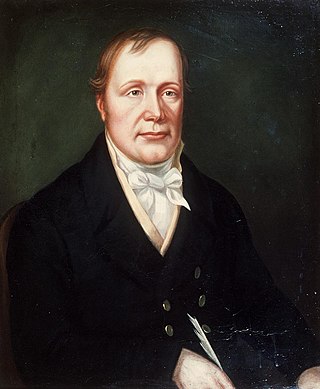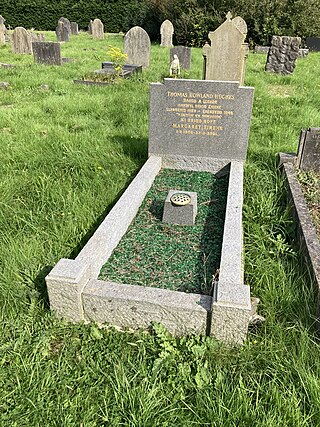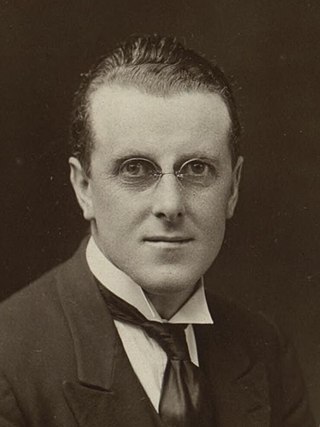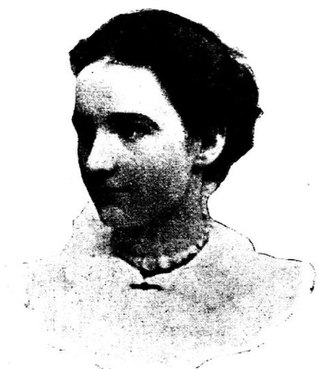Related Research Articles

Philip Edward Thomas was a British writer of poetry and prose. He is sometimes considered a war poet, although few of his poems deal directly with his war experiences. He only started writing poetry at the age of 36, but by that time he had already been a prolific critic, biographer, nature writer and travel writer for two decades. In 1915, he enlisted in the British Army to fight in the First World War and was killed in action during the Battle of Arras in 1917, soon after he arrived in France.

Hedd Wyn was a Welsh-language poet who was killed on the first day of the Battle of Passchendaele during World War I. He was posthumously awarded the bard's chair at the 1917 National Eisteddfod. Evans, who had been awarded several chairs for his poetry, was inspired to take the bardic name Hedd Wyn from the way sunlight penetrated the mist in the Meirionnydd valleys.

Welsh writing in English, is a term used to describe works written in the English language by Welsh writers.

Kate Roberts was one of the foremost Welsh-language authors of the 20th century. Styled Brenhines ein llên, she is known mainly for her short stories, but also wrote novels. Roberts was a prominent Welsh nationalist.

Ann Griffiths was a Welsh poet and writer of Methodist Christian hymns in the Welsh language. Her poetry reflects her fervent Christian faith and thorough scriptural knowledge.

Moelona was the pen-name of Elizabeth (Lizzie) Mary Jones, a Welsh novelist and translator who wrote novels for children and other works in Welsh.

John Jones, better known by his bardic name Jac Glan-y-gors, was a Welsh language satirical poet and radical pamphleteer, born in Cerrigydrudion, Denbighshire, north Wales.

Richard Davies (Mynyddog) was a popular Welsh-language poet, singer, and Eisteddfod conductor. The original source of the name Mynyddog is from Newydd Fynyddog, a hill near his home. Another submission is the name comes from Mynyddog Mwynfawr, a character in an early Welsh poem. Use of an adopted Welsh-language pseudonym or bardic name is common among Welsh poets.

Thomas Rowland Hughes, was a Welsh broadcaster, novelist, dramatist and poet. He was the son of a quarryman from Llanberis, Caernarfonshire, in north Wales. He is primarily renowned in the present day for his novels about characters living and working in the slate quarries of north Wales, but in his day he was just as well known as a poet and broadcaster. William Jones is his most famous novel.

Owen Wynne Jones, often known by his bardic name of Glasynys, was a Welsh clergyman, folklorist, poet, novelist and short-story writer.

Robert Williams Parry was one of Wales's most notable 20th-century poets writing in Welsh.
Goronwy Owen was one of the 18th century's most notable Welsh poets. He mastered the 24 traditional bardic metres and, although forced by circumstances into exile, played an important role in the literary and antiquarian movement in Wales often described as the Welsh 18th-century Renaissance.
Y Cymmrodor was the annual journal of the Honourable Society of Cymmrodorion, published between 1821 and 1951. It contained essays and lectures on historical and literary topics and Welsh poetry.
The Dictionary of Welsh Biography (DWB) is a biographical dictionary of Welsh people who have made a significant contribution to Welsh life over seventeen centuries. It was first published in 1959, and is now maintained as a free online resource.

Robert Thomas Jones was a Welsh quarryman, trade unionist and Labour Party politician.
Elen Egryn, pen name of ElinEvans, (1807–1876) was a Welsh poet. She was the first woman to have a book published in the Welsh language.

Sarah Winifred Parry was a Welsh writer most known for developing the modern Welsh short story. She used her nickname Winnie Parry as her pen name. She became a household name with her serialized fiction in periodicals at the turn of the twentieth century. Her most acclaimed work, Sioned, first published as a serial between 1894 and 1896 was introduced as a novel in 1906 and was reissued in 1988 and 2003.
Jane Hughes was a Welsh poet and hymnist. She wrote under the pen name Deborah Maldwyn.
Rhiannon Davies Jones was a Welsh historical novelist, lecturer and Welsh nationalist who wrote in Welsh. Educated at University College Bangor, she won two prizes for short novels, two Prose Medals at the National Eisteddfod of Wales and the crown at the 1973 Anglesey Eisteddfod. Jones published ten novels with her works covering fictional diaries, her political beliefs and responses to political events, and Welsh kings and princes.
John Davies is a Welsh poet whose first collection, The Strangers, was published in 1974. He was awarded the Alice Hunt Bartlett Prize in 1985.
References
- 1 2 3 Jones, Bedwyr Lewis. "FOULKES , ANNIE". Dictionary of Welsh Biography . National Library of Wales . Retrieved 30 November 2017.
- ↑ Welsh Periodicals in English: 1882 - 2012. University of Wales Press. 2013. p. 38. ISBN 9780708326152.